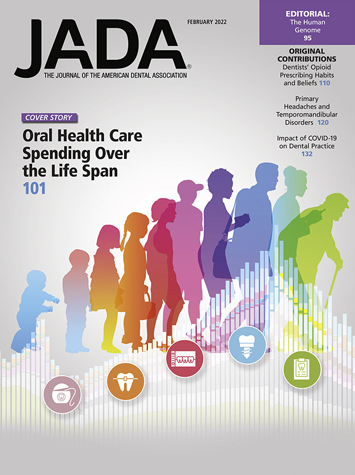
An article from CareQuest Institute researchers in the Journal of the American Dental Association features one of the most comprehensive life course analyses of spending on oral health care. Using data from more than 31 million Medicaid claims and more than 45 million commercial or Medicare supplemental claims, the analysis shows the complexities of the current dental service environment and a lack of equitable access to oral health care. The findings demonstrate the importance of understanding and addressing the factors that impact oral health status at every stage of life and the impact of oral health status on overall health, mental health, and life trajectory.
Key findings include:
- Oral health care use rate and spending are lower during the first four years of life and in young adulthood than in other periods of life.
- Stark differences in timing, impact, and severity of caries, periodontal disease, and oral cancer are seen between those enrolled in Medicaid and commercial dental plans.
- Early childhood caries and oral cancer occur more frequently and at younger ages in Medicaid populations.
“Health policies should be focused on optimizing care delivery to provide effective preventive care at specific stages of the life span,” the authors write in the conclusion, “as opposed to policy development that is precipitated by short-term political and financial dynamics.”
You may also be interested in:
- Determinants of Tooth Loss in a Medicaid Adult Population, an article that examines the determinants of tooth loss in a Medicaid-enrolled population using claims data from 2016-2018.
- Cutting Medicaid Adult Dental Benefits Would Hurt States in Unexpected Ways, a visual report that shows how cuts could harm job growth and increase costs.
- Medicaid Adult Dental Benefit Toolkit for Advocates, a toolkit designed to help advocates educate policymakers and other stakeholders to not only preserve Medicaid adult dental benefits but strengthen them as well.